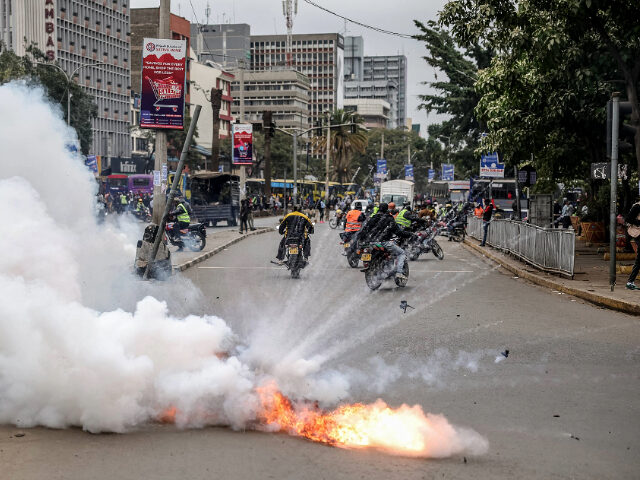Kenyan police on Wednesday banned protests in the Central Business District of Nairobi after demonstrations against the government of President William Ruto turned violent.
The High Court in Nairobi immediately suspended the ban, pending resolution of a public interest lawsuit.
“We have credible intelligence that organized criminal groups are planning to take advantage of the ongoing protests to execute their attacks, including looting,” Nairobi Police Chief and Acting Inspector General Douglas Kanja Kiricho said on Wednesday.
“No demonstrations will be permitted in the Nairobi Central Business District and its surroundings until further notice,” he said.
Kanja said the lack of leadership among the protesters made it hard to “enforce safety protocols.”
“We, therefore, appeal to all members of the public to remain vigilant in crowded areas and to support our collective safety and security by sharing any information that may aid the police in crime detection and prevention,” he said.
Kanja also claimed that “criminals have infiltrated the protesting groups, leading to a troubling trend of disorderly and destructive conduct.”
These accusations of criminal infiltration were not unprecedented. Several leading figures in the amorphous protest movement complained that infiltrators and “goons” caused the mostly orderly and politically successful protests to descend into violence. Some portrayed the goons as operatives that politicians dispatched to “tarnish” the protest movement with their antics, while others portrayed them as opportunistic thieves and vandals.
The Kenya National Commission on Human Rights said on Tuesday that 50 people had been killed and 413 had been injured after the protests began on June 18. Protest leaders attribute many of the deaths and injuries to excessive use of force by the police.
A spokesman for the Ruto administration said on Thursday that the Kenyan economy had suffered some $45 million in damage from the protests.
The demonstrations began after the Ruto administration rolled out a budget bill that included some $2.7 billion in tax increases on everything from bread to car insurance. The government dropped a few of the most unpopular tax hikes, but protests continued, and Ruto withdrew the bill entirely in late June.
The protest movement, loosely organized but fueled by heavy traffic on China’s spyware-laced social media program TikTok, did not declare victory and go home. Instead, it began demanding Ruto’s resignation. Violent incidents increased, leading some prominent activists to issue warnings about the ruling party sending in “goons” to discredit the movement.
Kenyan activists objected that neither the police nor Ruto has the authority to suspend the rights to speak and protest, which are enshrined in the Kenyan constitution. The U.S. Embassy in Nairobi also urged the government to “exercise restraint and protect the rights of people to demonstrate peacefully.”
“We call on provocateurs and opportunists to avoid blocking roads and looting businesses. All actors — police and protesters alike — should repudiate violence and be held accountable for wrongdoing,” the embassy added.
The Kenyan High Court in Nairobi blocked the police ban on protests on Thursday, prodded by public-interest litigation from a group called the Katiba Institute. The institute argued that by issuing the protest ban, Kanja “grabbed for himself the sole privilege of determining who does and does not enjoy the right to assemble, picket, and protest.”
“It is in the public interest that people be allowed to exercise their right to demonstrate peacefully and unarmed and that the police serve the people who assemble by protecting them and not using excessive force against them,” Katiba Institute representative Emily Kinama said.

COMMENTS
Please let us know if you're having issues with commenting.